How to choose a reliable data center provider: seven success factors
Reliable data center provides uninterrupted power and cooling of installed equipment, continuous operation of your servers, communication channels and multi-level protection to ensure the safety of critical data. But not all data centers are equally useful. Very often, the reliability of the data center and the quality of service depend on the company that owns it.

Some data centers (especially abroad) are owned by real estate companies, others by holding companies that own other types of high-tech or non-high-tech businesses. Often, company owners have only minimal experience in owning and operating a data center. It is better to choose a reliable, experienced provider who specializes in data centers. Consider the recommendations that give foreign experts on this subject, and try to somewhat adapt them to the conditions of the Russian market.
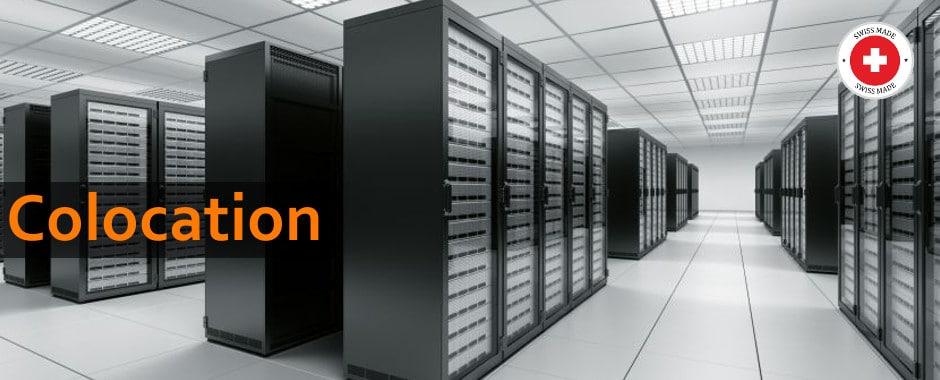
Obviously, the cheapest option does not always mean the best service for your money. If you don’t want to sacrifice IT security or risk critical data, it’s best to avoid providers who consider the data center as “just another high-tech warehouse” that doesn’t have enough experience or rent a site from another owner. In the role of data center providers in Russia can be system integrators, telecom providers, large vendors, owners of commercial data centers, cloud providers. By the beginning of 2017, the Russian market of commercial data centers reached approximately 14.5 billion rubles, which is 11% more than last year.
')
There are seven critical success factors to consider when choosing a data center. Among them:
Undoubtedly, the experience of the company - the owner of the data center, how long it has been working in the industry is of great importance. Don't forget about the future: it’s worth choosing a data center service provider who can host your IT equipment for years. Look for a data center provider who has been known in this business for more than one year (or even better for 10 years), which indirectly confirms the reliability of the company.
A significant “track record” also shows that the company has accumulated sufficient experience in operating a data center to provide decent service and high reliability of its site operation.
If the provider has additional competences in the field of technology, it is helpful to find out how closely they are connected directly to the data center. Are the services of renting space in the data processing center or placing equipment of the clients ( colocation or colocation) with other services, which services are provided? Is there a special unit aimed at providing customers with the best service?

Does the provider have one or more data centers ? The more sites (including overseas - rented or own), the more serious the business. It is good if the provider is a growing, growing company, that is, it is building or acquiring new data centers, and not just operating existing ones. This shows that the company is investing in business and introducing new technologies.
Ask your provider for a customer list if it’s public information, get acquainted with “success stories” and customer reviews. If among the customers are large and well-known companies and organizations, it means that they have already shown due diligence, studied the issue and are ready to trust this provider with their IT infrastructure and critical data.
Ask your provider if it serves other companies in your industry. If the data center owner specializes in serving certain industries or vertical markets (eg, healthcare, financial, or oil and gas), then he is probably well aware of the needs of clients from these industries (for example, they understand the requirements for storing personal data and can act as the operator of such data).
Also, it does not hurt to go to the provider's website to get acquainted with the biographies of the manual, if there is such information. How long do they work in the company? What is their experience in the data center industry? If executives have extensive data center experience, they are probably better able to understand how successful data centers work, and also know the needs of their customers.
Finally, ask if the provider has any strategic partnership that may be useful for your company (for example, it may be a partner of a SaaS cloud service provider, PaaS or IaaS, a server hosting platform provider , or a security solution provider). Also ask if the provider has received any industry awards for the quality of customer service.
You need to make sure that the owner of the data center has assets for long-term service provision. It's risky to deal with a provider who is struggling to fulfill his financial obligations. It is unlikely that you want to choose a provider who can go bankrupt in a few years and leave you in a difficult situation.
If the provider is a public company, then its latest financial indicators are available in annual reports, published in the media. Private companies are often less willing to share financial data, and it may take a little more effort to obtain this information. Government structures are subject to more thorough financial verification.
You can ask your provider for the latest financial statements. For foreign companies, financial performance is often verified by an independent auditor, such as Ernst & Young or KPMG. The key element is transparency. If the supplier does not wish to share financial information or conduct an independent audit, this should be alarming. In Russia, various data center ratings are published (taking into account not only financial indicators), this is also a good reference point.
If you are able to obtain relevant financial statements, ask your accountant to analyze it in detail in terms of meeting short-term and long-term financial obligations.
According to foreign experts, it is also worth exploring the following elements:
An important issue that should be taken into account by large customers when considering a data center service provider is how much business will you provide. If placing your IT equipment provides 50% of its business, it can give you special conditions. But if you decide to double your IT park, you can exceed the capabilities of the provider.
Before considering the other critical factors, let's dwell on the risks. Question number 1 for each company choosing a data center provider: “How safe will it be for my IT infrastructure and critical data?”. For each provider considered, it is necessary to assess the risks of server failure or data loss.
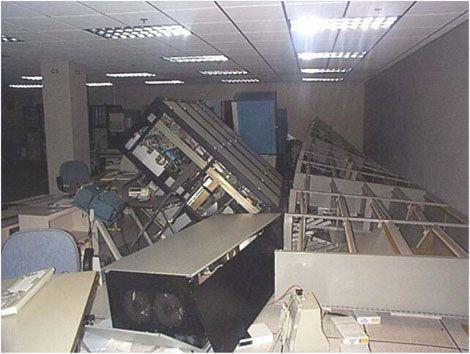
There are three main areas of risk assessment:
To assess these risks, you need to analyze the location , physical infrastructure, and data center security systems where you plan to host your servers. The data center owner must have a disaster recovery / business continuity plan. Each data center should have specific procedures that describe what to do in the event of a power outage, natural disaster, etc. The provider must have plans to ensure the security of the data and equipment of the customers, as well as the IT infrastructure at each site.
These plans must be aligned with best practices, such as international standards for ensuring business continuity. Data center staff should be well trained in disaster recovery procedures. In addition, the facility must regularly check its failure prevention systems (i.e., automatic switching of electricity, fire protection systems) to ensure their proper operation in the event of an incident.
Look very closely at the physical infrastructure of the data center where you want to host your servers. Ask the data center owner for a tour of the facility for your company's specialists.
No data center can be completely protected from natural or man-made disasters. Wherever it is located, the site is vulnerable to some kind of disaster, be it an earthquake, tornado, hurricane, flood, fire, etc. However, reliable data centers are built to withstand almost any disaster.
A number of infrastructure elements help achieve this, but the foundation is the actual physical location of the data center. For example, a data center should be built on a hill where it is inaccessible to flood waters. Data centers should not be built near airports or in close proximity to any industrial facilities (nuclear or chemical installations).

The data center building may be a reinforced concrete structure with special characteristics designed for different types of natural disasters characteristic of the area. Sometimes the data center is located in the former bomb shelters . The data center in the area of possible earthquakes should be earthquake-resistant in order to withstand a sufficiently strong earthquake. The data center in an area prone to hurricanes or tornadoes must have storm protection.
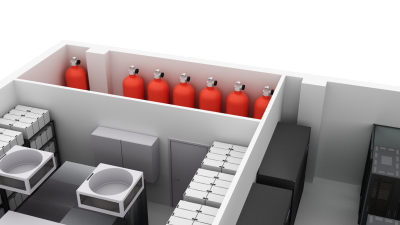
It is also very important that each data center has a reliable fire protection system, such as a smoke detection system (VESDA).
A reliable data center has several levels of redundancy. Its power supplies must be fault tolerant, so if one power supply is turned off, it automatically switches to other power supplies. These may include:

High availability fully redundant cooling is required in a reliable data center. For example, an object may have several air conditioning units (CRAC) with automatic switching, therefore, if one of the CRAC units fails, another device will automatically connect.
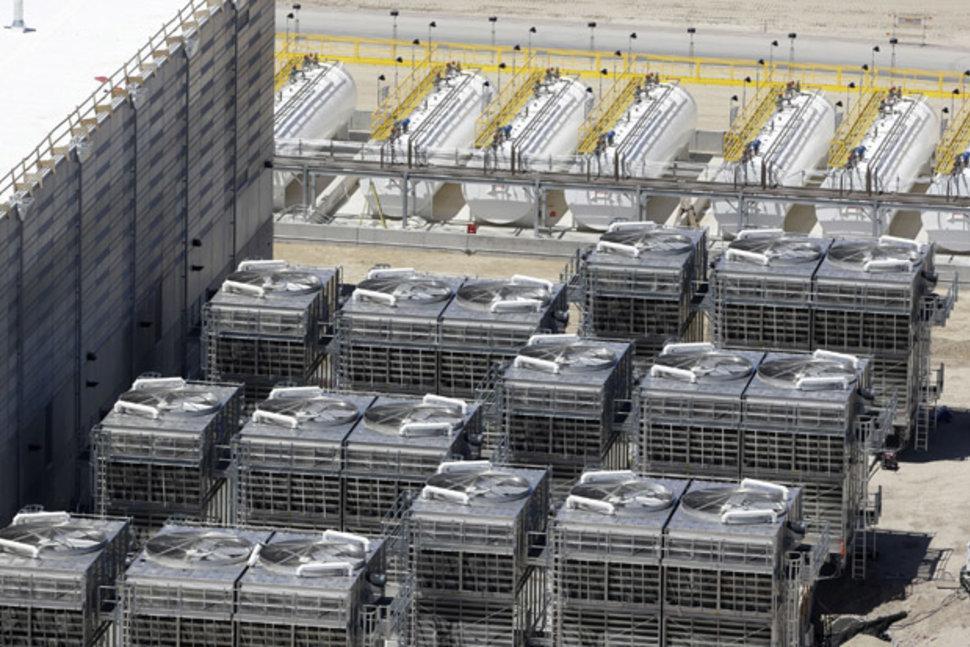
There are also a number of factors that should be considered in relation to the physical infrastructure of the data center, not related to disaster preparedness. Often this applies to your business, your current IT infrastructure and your plans.
For example, the choice of the actual location of the data center often depends on the needs of your company. Some companies prefer to have their IT infrastructure within reach of the company's office or place of its core business. For example, a company located in Moscow can choose a place to be placed in an information center in St. Petersburg, or very close to somewhere in Korolev.
Other companies have no problems with the deployment of IT infrastructure in a remote city. If only there was an airport so that they could fly in and check their computer equipment. This is usually best suited for companies with several regional branches and a geographically distributed structure.
You need to know how much space, power, and cooling are required for your IT assets, and whether the data center has that many resources. A good data center has space and capacity reserves for future growth. You only need to assess your needs in the future scaling of your IT infrastructure and make sure that the data center is able to meet them. Ask how many watts per rack is available, what is the maximum / minimum power density.
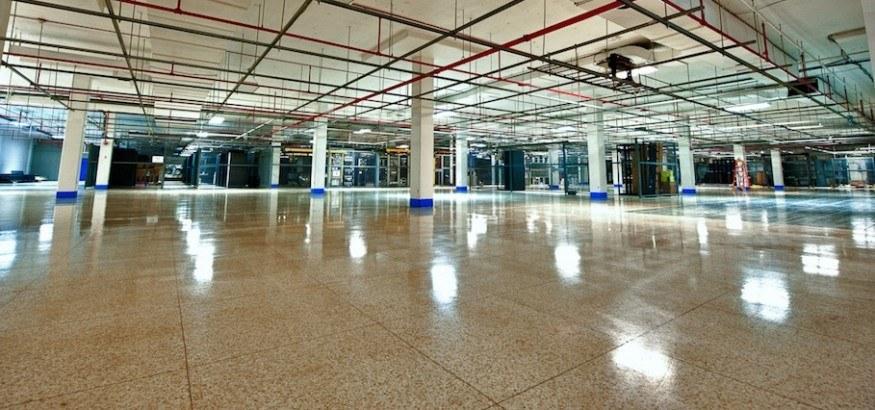
Ask for the layout of the racks and the data center plan. Use it to determine how much space you need for your current need and how much extra space is available in case you need an extension.
In addition to the redundant power supply, a reliable data center provides the necessary cooling for your IT equipment. It must meet or exceed ASHRAE standards for temperature and humidity.
A reliable data center offers highly reliable and communication channels from several operators with the necessary bandwidth. Sometimes payment is required depending on the bandwidth used, you can flexibly scale the bandwidth during periods of maximum and minimum activity.
In some cases, it is necessary to create disaster-resistant configurations with replication between spaced sites or in organizing backup to a remote data center.
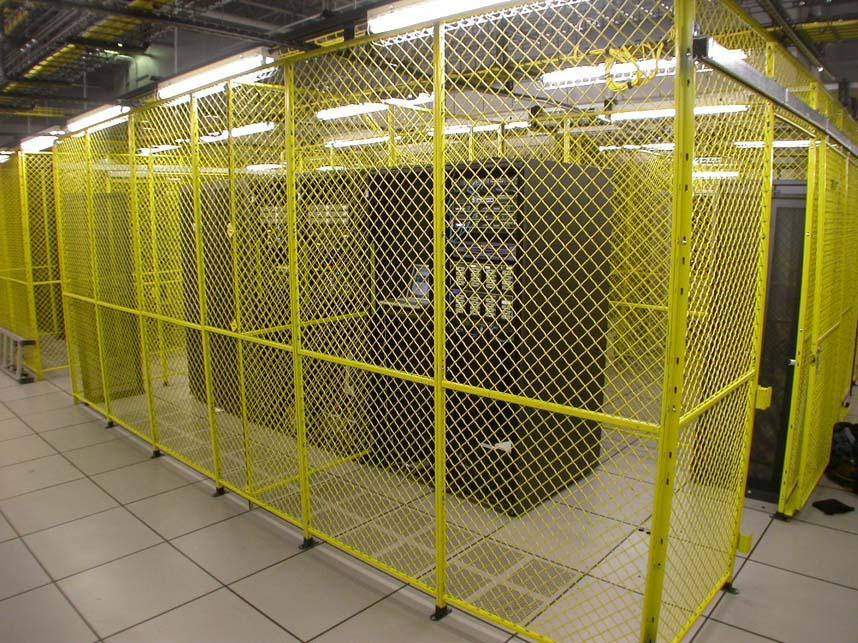
The interior of the data center should include several rooms with limited access for visitors to different parts of the building. All data center areas should be monitored using an electronic security system, such as round-the-clock video surveillance systems and internal and external alarms (perimeter control).
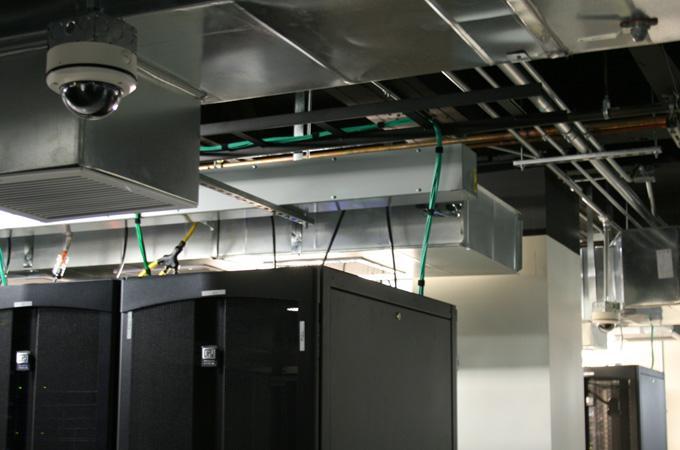
The data processing center should include established security procedures that determine who has access to the facility, how passes are issued and recorded to visitors, as well as procedures that should be followed in case of a security breach. The data center should be staffed by 24/7 security personnel.
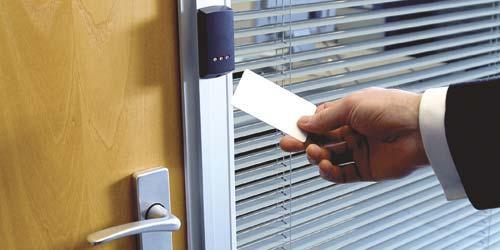
Finally, the data center must meet important regulatory requirements for you. Ask the vendor for documentation that the data center has passed such a check (abroad these are HIPAA requirements, SSAE-16, SOX, FISMA, PCI-DSS, etc.).
A reliable data center provides its customers with high-quality service and support. It should be operated by well-trained and attentive staff, present on site 24 hours a day (in addition to security personnel). Site personnel will be responsible for managing and monitoring the state of the facility and its systems, maintaining and storing, processing and delivering, etc.

The control center monitors all data center systems, including the operation of IT systems, power levels, temperature, humidity, and video surveillance. Data center customers must have access to real-time reports in order to constantly monitor the state of their information systems.
In addition, the data center should include a set of established procedures for daily operations, routine preventive maintenance, and periodic system testing. Employees should be trained in established procedures to determine what to do in the event of a “event” (for example, a power outage).
A system for notifying customers of this situation is also required. Data center employees should provide you with support when moving, installing equipment, or expanding your area.
Choose a provider that offers a service level agreement (SLA) with a written guarantee of uninterrupted power and continuous operation (for example, 99.999% or “five nines”). The SLA should also indicate how much compensation you will receive if the supplier fails to fulfill its obligations.
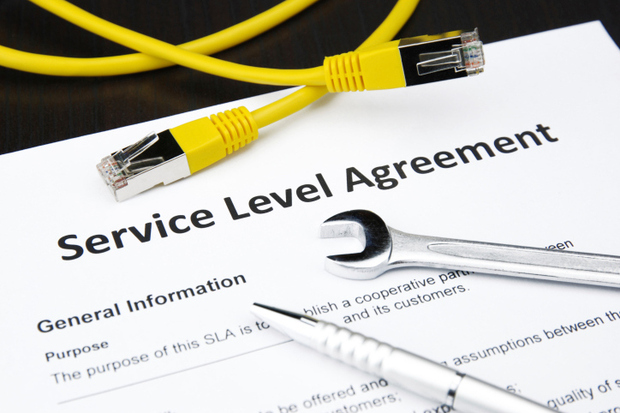
Find out what base rates are offered for hosting and how the tariff plans are structured. Questions to ask include:
Your goal is to choose a data center service provider that will be your reliable business partner. The success of your company depends on the high availability of your IT environment and the security of critical data. Therefore, you should carefully examine the provider, before signing the agreement, to require as much transparency as possible. The more information you get, the easier it will be for you to make an informed decision and choose a reliable partner for the long term. A reliable data center service provider is an experienced, stable and growing company with highly reliable and well-designed sites.
But in what cases is it worth renting space and / or IT resources in a commercial data center, and in which cases - to build or expand your site? In conclusion, touch on this topic.
Today, data is the most important asset for almost any business, and the need for the placement and maintenance of constantly growing “digital assets” increases exponentially. When an organization is faced with the need to expand or upgrade its data center, it faces a choice: creating a new data center, retrofitting an existing data center, or finding a partner to host its IT equipment. Choosing the right service provider can lower your total cost of ownership and translate capital expenditures into operating expenses.
Why do we need to expand data centers at all? Some of the possible reasons are:
When planning to upgrade existing data centers or build new ones, it may not be easy to determine future needs, and significant investments usually pay off for a long time. The following trends should be taken into account:

The needs of data centers for each company are variable, they change, and you need to think carefully before you start building your own site - capital costs, which include facilities, maintenance and power supply.
If data centers are not the backbone of your business, you should not allocate so much resources to them - financial and human. Partnership with a reliable provider - the owner of the data center - will free up the time and capital that is better spent on the development of your business. As the cloud model spreads, demand for its own data centers will decrease. Why create a data center that can be significantly underloaded in a few years?
Providers have already invested in large data centers around the world. Take advantage of “economies of scale” and direct your capital to business development. The provider already has the necessary infrastructure to quickly get deployed applications and workloads to support your business.

How much can you save? As various online calculators show, cost savings can be impressive. Of course, in each specific case - depending on the provider and the needs of the customer - different results are obtained.
Thanks for attention!

Some data centers (especially abroad) are owned by real estate companies, others by holding companies that own other types of high-tech or non-high-tech businesses. Often, company owners have only minimal experience in owning and operating a data center. It is better to choose a reliable, experienced provider who specializes in data centers. Consider the recommendations that give foreign experts on this subject, and try to somewhat adapt them to the conditions of the Russian market.

Obviously, the cheapest option does not always mean the best service for your money. If you don’t want to sacrifice IT security or risk critical data, it’s best to avoid providers who consider the data center as “just another high-tech warehouse” that doesn’t have enough experience or rent a site from another owner. In the role of data center providers in Russia can be system integrators, telecom providers, large vendors, owners of commercial data centers, cloud providers. By the beginning of 2017, the Russian market of commercial data centers reached approximately 14.5 billion rubles, which is 11% more than last year.
')
There are seven critical success factors to consider when choosing a data center. Among them:
- Company experience.
- Its financial stability.
- Physical infrastructure.
- Physical security
- Customer service and support.
- Service Level Agreements
- Suggested tariff plans.
Success Factor # 1: Company Experience
Undoubtedly, the experience of the company - the owner of the data center, how long it has been working in the industry is of great importance. Don't forget about the future: it’s worth choosing a data center service provider who can host your IT equipment for years. Look for a data center provider who has been known in this business for more than one year (or even better for 10 years), which indirectly confirms the reliability of the company.
A significant “track record” also shows that the company has accumulated sufficient experience in operating a data center to provide decent service and high reliability of its site operation.
If the provider has additional competences in the field of technology, it is helpful to find out how closely they are connected directly to the data center. Are the services of renting space in the data processing center or placing equipment of the clients ( colocation or colocation) with other services, which services are provided? Is there a special unit aimed at providing customers with the best service?

Does the provider have one or more data centers ? The more sites (including overseas - rented or own), the more serious the business. It is good if the provider is a growing, growing company, that is, it is building or acquiring new data centers, and not just operating existing ones. This shows that the company is investing in business and introducing new technologies.
Ask your provider for a customer list if it’s public information, get acquainted with “success stories” and customer reviews. If among the customers are large and well-known companies and organizations, it means that they have already shown due diligence, studied the issue and are ready to trust this provider with their IT infrastructure and critical data.
Ask your provider if it serves other companies in your industry. If the data center owner specializes in serving certain industries or vertical markets (eg, healthcare, financial, or oil and gas), then he is probably well aware of the needs of clients from these industries (for example, they understand the requirements for storing personal data and can act as the operator of such data).
Also, it does not hurt to go to the provider's website to get acquainted with the biographies of the manual, if there is such information. How long do they work in the company? What is their experience in the data center industry? If executives have extensive data center experience, they are probably better able to understand how successful data centers work, and also know the needs of their customers.
Finally, ask if the provider has any strategic partnership that may be useful for your company (for example, it may be a partner of a SaaS cloud service provider, PaaS or IaaS, a server hosting platform provider , or a security solution provider). Also ask if the provider has received any industry awards for the quality of customer service.
Success Factor # 2: Financial Stability
You need to make sure that the owner of the data center has assets for long-term service provision. It's risky to deal with a provider who is struggling to fulfill his financial obligations. It is unlikely that you want to choose a provider who can go bankrupt in a few years and leave you in a difficult situation.
If the provider is a public company, then its latest financial indicators are available in annual reports, published in the media. Private companies are often less willing to share financial data, and it may take a little more effort to obtain this information. Government structures are subject to more thorough financial verification.
You can ask your provider for the latest financial statements. For foreign companies, financial performance is often verified by an independent auditor, such as Ernst & Young or KPMG. The key element is transparency. If the supplier does not wish to share financial information or conduct an independent audit, this should be alarming. In Russia, various data center ratings are published (taking into account not only financial indicators), this is also a good reference point.
If you are able to obtain relevant financial statements, ask your accountant to analyze it in detail in terms of meeting short-term and long-term financial obligations.
According to foreign experts, it is also worth exploring the following elements:
- Does the provider provide insurance for clients , for which insurance claims? Who is an insurance company?
- It is good if the provider has a revolving credit line from reputable banks. A public company can have a good credit rating from a reputable agency such as Standard & Poor's or Moody's.
- The provider must have access to bank loans or investors to support future growth.
An important issue that should be taken into account by large customers when considering a data center service provider is how much business will you provide. If placing your IT equipment provides 50% of its business, it can give you special conditions. But if you decide to double your IT park, you can exceed the capabilities of the provider.
▍ Risk assessment
Before considering the other critical factors, let's dwell on the risks. Question number 1 for each company choosing a data center provider: “How safe will it be for my IT infrastructure and critical data?”. For each provider considered, it is necessary to assess the risks of server failure or data loss.

There are three main areas of risk assessment:
- The risk of losing servers and / or critical data due to natural or man-made disasters (hurricanes, floods, earthquakes, fires).
- The risk of data loss due to data center equipment failure (power outage).
- Risk of data loss due to security breach.
To assess these risks, you need to analyze the location , physical infrastructure, and data center security systems where you plan to host your servers. The data center owner must have a disaster recovery / business continuity plan. Each data center should have specific procedures that describe what to do in the event of a power outage, natural disaster, etc. The provider must have plans to ensure the security of the data and equipment of the customers, as well as the IT infrastructure at each site.
These plans must be aligned with best practices, such as international standards for ensuring business continuity. Data center staff should be well trained in disaster recovery procedures. In addition, the facility must regularly check its failure prevention systems (i.e., automatic switching of electricity, fire protection systems) to ensure their proper operation in the event of an incident.
Success Factor # 3: Physical Infrastructure
Look very closely at the physical infrastructure of the data center where you want to host your servers. Ask the data center owner for a tour of the facility for your company's specialists.
▍Location
No data center can be completely protected from natural or man-made disasters. Wherever it is located, the site is vulnerable to some kind of disaster, be it an earthquake, tornado, hurricane, flood, fire, etc. However, reliable data centers are built to withstand almost any disaster.
A number of infrastructure elements help achieve this, but the foundation is the actual physical location of the data center. For example, a data center should be built on a hill where it is inaccessible to flood waters. Data centers should not be built near airports or in close proximity to any industrial facilities (nuclear or chemical installations).

The data center building may be a reinforced concrete structure with special characteristics designed for different types of natural disasters characteristic of the area. Sometimes the data center is located in the former bomb shelters . The data center in the area of possible earthquakes should be earthquake-resistant in order to withstand a sufficiently strong earthquake. The data center in an area prone to hurricanes or tornadoes must have storm protection.

It is also very important that each data center has a reliable fire protection system, such as a smoke detection system (VESDA).
▍Reservation of power supply and cooling systems
A reliable data center has several levels of redundancy. Its power supplies must be fault tolerant, so if one power supply is turned off, it automatically switches to other power supplies. These may include:
- Backup input from another substation. If possible, the data center should have two independent power inputs. In the event of an accident, the other will continue to provide power to the data center.
- Diesel generators. At many sites there is a DGU that provides power to the facility in case of a local power grid failure. DGUs with an adequate supply of fuel can maintain the operation of the facility for several days, and when fuel is delivered, even longer.
- Uninterruptible Power Supply (UPS). In many data centers there is a room filled with shelves with batteries. If the main power supply is turned off, the UPS supplies power to the facility until the backup power sources are connected - a backup input or a diesel generator set.

High availability fully redundant cooling is required in a reliable data center. For example, an object may have several air conditioning units (CRAC) with automatic switching, therefore, if one of the CRAC units fails, another device will automatically connect.

There are also a number of factors that should be considered in relation to the physical infrastructure of the data center, not related to disaster preparedness. Often this applies to your business, your current IT infrastructure and your plans.
For example, the choice of the actual location of the data center often depends on the needs of your company. Some companies prefer to have their IT infrastructure within reach of the company's office or place of its core business. For example, a company located in Moscow can choose a place to be placed in an information center in St. Petersburg, or very close to somewhere in Korolev.
Other companies have no problems with the deployment of IT infrastructure in a remote city. If only there was an airport so that they could fly in and check their computer equipment. This is usually best suited for companies with several regional branches and a geographically distributed structure.
▍ Available Data Center Area and Future Expansion
You need to know how much space, power, and cooling are required for your IT assets, and whether the data center has that many resources. A good data center has space and capacity reserves for future growth. You only need to assess your needs in the future scaling of your IT infrastructure and make sure that the data center is able to meet them. Ask how many watts per rack is available, what is the maximum / minimum power density.

Ask for the layout of the racks and the data center plan. Use it to determine how much space you need for your current need and how much extra space is available in case you need an extension.
▍ Cooling performance
In addition to the redundant power supply, a reliable data center provides the necessary cooling for your IT equipment. It must meet or exceed ASHRAE standards for temperature and humidity.
Channels
A reliable data center offers highly reliable and communication channels from several operators with the necessary bandwidth. Sometimes payment is required depending on the bandwidth used, you can flexibly scale the bandwidth during periods of maximum and minimum activity.
In some cases, it is necessary to create disaster-resistant configurations with replication between spaced sites or in organizing backup to a remote data center.
Success Factor # 4: Physical Security
- A robust data center has several levels of security to protect your IT infrastructure and data. Visitors to the facility will need to go through several zones of control. Here is an example of such multi-level security:
- The data center building is surrounded by a high fence. Guests must register at the entrance to the parking lot.
- The entrance area is a protected area, separated from the rest of the object and monitored round the clock by the security service.
- Visitors must present a photo ID at the entrance, sometimes through a biometric scan (fingerprint and retinal scan).
- Visitors at the entrance to their racks must be accompanied by security officers.
- In some cases, the client's IT infrastructure is in a closed “cell”. Visitors must have a key, RFID key card and / or PIN to enter this area.

The interior of the data center should include several rooms with limited access for visitors to different parts of the building. All data center areas should be monitored using an electronic security system, such as round-the-clock video surveillance systems and internal and external alarms (perimeter control).

The data processing center should include established security procedures that determine who has access to the facility, how passes are issued and recorded to visitors, as well as procedures that should be followed in case of a security breach. The data center should be staffed by 24/7 security personnel.
- Training. Security personnel must be well trained and thoroughly familiar with facility security procedures.
- Checks. Employees must be thoroughly tested when applying for a job.
- Non-Disclosure Agreement (NDA). You need to know what types of NDA security officers are required to sign.
- Subcontractors. If the data center owner uses third-party companies to provide security, you need to know who these subcontractors are, how they test their employees.

Finally, the data center must meet important regulatory requirements for you. Ask the vendor for documentation that the data center has passed such a check (abroad these are HIPAA requirements, SSAE-16, SOX, FISMA, PCI-DSS, etc.).
Success Factor # 5: Customer Service and Support
A reliable data center provides its customers with high-quality service and support. It should be operated by well-trained and attentive staff, present on site 24 hours a day (in addition to security personnel). Site personnel will be responsible for managing and monitoring the state of the facility and its systems, maintaining and storing, processing and delivering, etc.

The control center monitors all data center systems, including the operation of IT systems, power levels, temperature, humidity, and video surveillance. Data center customers must have access to real-time reports in order to constantly monitor the state of their information systems.
In addition, the data center should include a set of established procedures for daily operations, routine preventive maintenance, and periodic system testing. Employees should be trained in established procedures to determine what to do in the event of a “event” (for example, a power outage).
A system for notifying customers of this situation is also required. Data center employees should provide you with support when moving, installing equipment, or expanding your area.
Success Factor # 6: Service Level Agreements
Choose a provider that offers a service level agreement (SLA) with a written guarantee of uninterrupted power and continuous operation (for example, 99.999% or “five nines”). The SLA should also indicate how much compensation you will receive if the supplier fails to fulfill its obligations.

Success Factor # 7: Suggested Tariff Plans
Find out what base rates are offered for hosting and how the tariff plans are structured. Questions to ask include:
- Is there a monthly / yearly fee?
- How will affect the price of the expansion of services during the term of the contract?
- Are there any hidden fees?
- In the case of a lease, review its terms: do it cover unexpected expenses, such as real estate taxes, utility bills.
findings
Your goal is to choose a data center service provider that will be your reliable business partner. The success of your company depends on the high availability of your IT environment and the security of critical data. Therefore, you should carefully examine the provider, before signing the agreement, to require as much transparency as possible. The more information you get, the easier it will be for you to make an informed decision and choose a reliable partner for the long term. A reliable data center service provider is an experienced, stable and growing company with highly reliable and well-designed sites.
But in what cases is it worth renting space and / or IT resources in a commercial data center, and in which cases - to build or expand your site? In conclusion, touch on this topic.
Build or rent?
Today, data is the most important asset for almost any business, and the need for the placement and maintenance of constantly growing “digital assets” increases exponentially. When an organization is faced with the need to expand or upgrade its data center, it faces a choice: creating a new data center, retrofitting an existing data center, or finding a partner to host its IT equipment. Choosing the right service provider can lower your total cost of ownership and translate capital expenditures into operating expenses.
Why do we need to expand data centers at all? Some of the possible reasons are:
- Increase existing storage capacity. The accumulation of more data.
- Obsolescence equipment. Technology evolves exponentially, the “life cycle” of IT equipment is only a few years old.
- Business expansion. The need to increase resources while maintaining the level of service.
- Market trends. Support for corporate mobility and Internet technologies (IoT).
- Mergers and acquisitions. Combining disparate assets into a single structure.
- Allocation of businesses. The success of one direction or another or the need for optimization leads to the separation of a part of a company into an independent business.
- Transition to big data and analytics. The use of collected and accumulated data in the interests of business.
- Disaster Recovery. Protecting “digital assets” and ensuring business processes.
Uncertainty of the future
When planning to upgrade existing data centers or build new ones, it may not be easy to determine future needs, and significant investments usually pay off for a long time. The following trends should be taken into account:
- Workload is gradually moving to the public cloud. What will your opportunities be in 5 or 10 years?
- Technology is constantly changing. What applications will be vital for your business in the future?
- The need for computing power and storage resources is not constant. Can you increase or decrease it dynamically with the available staff, budget and bandwidth?
- Timing to market today is more important than ever. There is a growing need for new applications and workloads. How soon will you need extra capacity and power?

The needs of data centers for each company are variable, they change, and you need to think carefully before you start building your own site - capital costs, which include facilities, maintenance and power supply.
CAPEX to OPEX
If data centers are not the backbone of your business, you should not allocate so much resources to them - financial and human. Partnership with a reliable provider - the owner of the data center - will free up the time and capital that is better spent on the development of your business. As the cloud model spreads, demand for its own data centers will decrease. Why create a data center that can be significantly underloaded in a few years?
Providers have already invested in large data centers around the world. Take advantage of “economies of scale” and direct your capital to business development. The provider already has the necessary infrastructure to quickly get deployed applications and workloads to support your business.

How much can you save? As various online calculators show, cost savings can be impressive. Of course, in each specific case - depending on the provider and the needs of the customer - different results are obtained.
Thanks for attention!
Source: https://habr.com/ru/post/328988/
All Articles